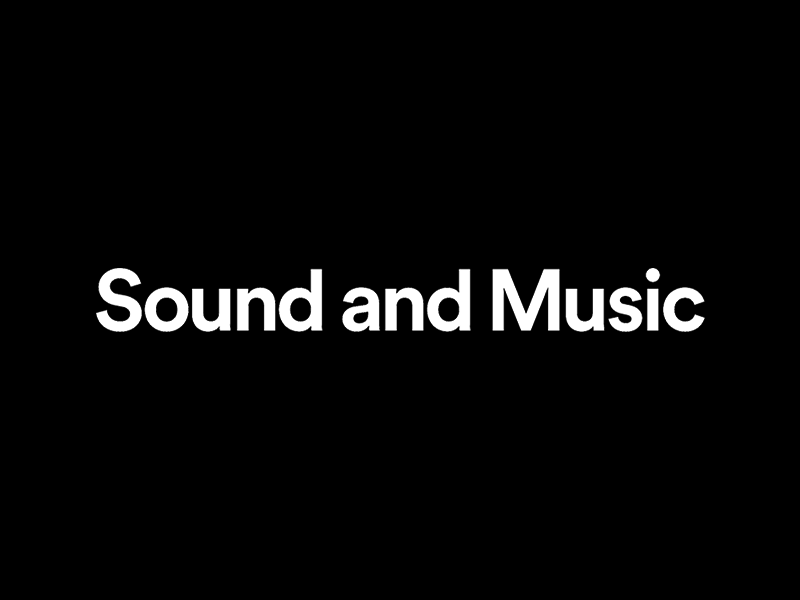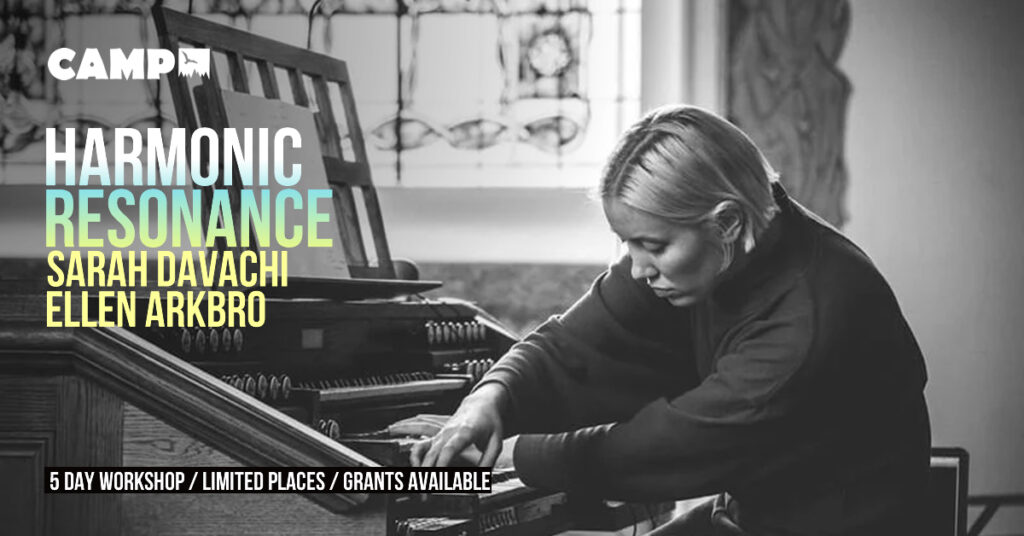A five-day residential workshop in the epic French Pyrenees, led by Sarah Davachi and Ellen Arkbro
Workshop dates: 04/10/2023 – 2023-10-09
Something about life at high altitude lends itself to thinking about music in durational and minimalist ways – the sense of deep time evoked by the ancient geology, the simplicity of lifestyle, the silence of the high peaks and the epic sense of space – these factors contribute to an environment perfect for contemplating big musical ideas. As such, Aulus is the perfect backdrop for this deep dive into theoretical minimalism, psychoacoustics, harmonic perception and spatial sound, led by two of the most celebrated composers working in this sphere today: Sarah Davachi and Ellen Arkbro.
You’ll arrive in Toulouse on the 3rd of October, and we’ll kick things off right away – Sarah is playing Toulouse that night, and we’ll see the show before jumping in the vans and heading up the mountain to start the workshop. Over the five days, Ellen and Sarah will share the time to lead us through an exploration of their approaches to long-form composition, minimalism, and harmonic sound.
Sarah will focus on minimalist approaches to composition from a theoretical perspective. In particular, we’ll consider how minimalism as a style and practice facilitates a shift in perception through a deliberate reduction of materials. Within this context, we’ll look at specific musical parameters such as timbre, texture, tuning/temperament, psychoacoustics, and harmony, and explore broader theories and texts in organology (the study of musical instruments) and phenomenology (the study of direct experience). As points of reference, we’ll draw from examples in experimental music, medieval and Renaissance music, and modern recording/studio production techniques. Much of the material in Sarah’s section will be taken from the work she’s been doing on her doctoral dissertation in musicology, which is also heavily informed by her practice as a composer and performer.
Ellen’s time will focus on harmonic sound – without getting too theoretical, and focusing more on the experiential/phenomenal aspects of harmonic sound, we’ll explore just intonation, the harmonic series, ways of listening and the spatial dimensions of tuned sound. We’ll enrich our understanding of harmonic sound through an experimental approach – listening, playing together, hearing the differences produced, and trying things out. We’ll explore how listening itself, as an active process, becomes part of the music, and we’ll draw on ideas of emptiness, space and architecture in sound.
Sarah Davachi’s work is concerned with the close intricacies of timbral and temporal space, utilizing extended durations and considered harmonic structures that emphasize gradual variations in texture, overtone complexity, psychoacoustic phenomena, and tuning and intonation. Her compositions span solo, chamber ensemble, and acousmatic formats, incorporating a wide range of acoustic and electronic instrumentation. Similarly informed by minimalist and long-form tenets, early music concepts of form, affect, and intervallic harmony, as well as experimental production practices of the studio environment in her sound, is an intimate and patient experience that lessens perceptions of the familiar and the distant.
In addition to her acclaimed recorded output, Sarah has toured extensively alongside artists such as Oren Ambarchi, Grouper, William Basinski, Robert Aiki Aubrey Lowe, Tashi Wada, Charlemagne Palestine and others. Commissioned projects include large-scale works for Quatuor Bozzini, the London Contemporary Orchestra, Yarn/Wire, Apartment House, Wild Up, the BBC Scottish Symphony Orchestra, Cello Octet Amsterdam, Bonner Kunstverein, the Canadian International Organ Competition, and Western Front New Music. Her work has been presented internationally by Southbank Centre (London UK), Barbican Centre (London UK), Kontraklang (Berlin DE), Ina GRM (Paris FR), Issue Project Room (New York USA), Lampo (Chicago USA), Elbphilharmonie (Hamburg DE), Organ Reframed (London UK), The Getty (Los Angeles USA), Orgelpark (Amsterdam NL), Le Guess Who? (Utrecht NL), The Museum of Jurassic Technology (Los Angeles USA), Mazeum Festival (Kyoto JP), Open Frame (Sydney AU), Unsound (Kraków PL), Église du Gesù (Montréal CA), Église Saint-Eustache (Paris FR), Temppeliaukio Church (Helsinki FI), Grace Cathedral (San Francisco USA), Rockefeller Memorial Chapel (Chicago USA), Church of the Heavenly Rest (New York USA), Basilica di Santa Maria dei Servi (Bologna IT), Lapidárium Národního Muzea (Prague CZ), and Museo Reina Sofia (Madrid ES), among others. In 2020 she founded Late Music, an imprint within the partner labels division of Warp Records.
Ellen Arkbro works primarily with intervallic harmony in just intonation – she studied just intonation under the tutelage of LaMonte Young, Marian Zazeela and Jung Hee Choi in New York, and Marc Sabat in Berlin. Her work includes full-length compositions for ensembles as well as electronic sound environments in the form of installations and live performances, using both traditional acoustic instruments and digital algorithmic sound synthesis. In all her work, Ellen Arkbro focuses on the qualities of harmonic sound that reveal listening as an active process of participatory construction rather than mere observation, inviting the listener to gradually transform into the sound itself.
Her last solo album ‘Chords’, released in 2019 on Subtext, saw Ellen adopting a more minimalist approach than on her previous record ‘For Organ and Brass’ – as Fluid Radio put it, ‘The music might be simple, but underneath the surface lies not just mountains of air, but oceans full of magisterial depth’.
Info & booking: www.campfr.com/davachi-arkbro
Email: hello@campfr.com
FB: www.facebook.com/campfr
Twitter: www.twitter.com/camp_fr
Instagram: www.instagram.com/camp_fr



